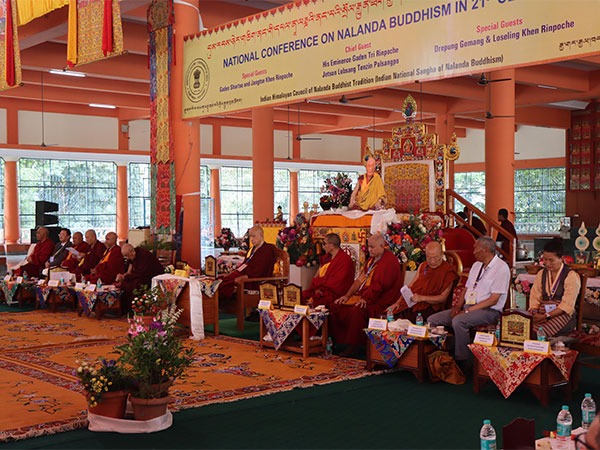New Delhi [India], March 21: The First General Assembly of the Indian Himalayan Council of Nalanda Buddhist Tradition (IHCNBT) was successfully held at the India International Center (IIC), New Delhi. This significant event brought together 120 Buddhist delegates from various Himalayan states across India, marking a historic gathering for the Buddhist community.
Prominent personalities in attendance included Lochen Tulku Rinpoche, President of IHCNBT; Maling Gombu, General Secretary; Sonam Wangchuk, founding member of IHCNBT; and Rajiv Kumar, Director of the National Institute of Open Schooling (NIOS), among other distinguished dignitaries.
Lochen Tulku Rinpoche, in his keynote address, emphasized the importance of preserving local languages, particularly in the Himalayan region. He mentioned the Dalai Lama’s advice to protect not just languages but also monasteries and institutions, transforming them into centers of learning. He further highlighted the IHCNBT’s success in obtaining recognition from NIOS for the Bhoti language.
Rinpoche also touched on the reincarnation of the Dalai Lama, stating, “It is clear that we, Indian Himalayan Buddhists, will accept whatever His Holiness decides about his reincarnation. If he says he will be born in India, then we shall be the happiest people. It is totally up to the Dalai Lama, and it is purely non-political.”
Addressing issues related to religious freedom, Rinpoche remarked on China’s stance against religion, asserting, “China is a communist country and does not accept religion, so we don’t care about what China thinks about Buddhist practices.”
Maling Gombu, General Secretary of IHCNBT, spoke about the Tibetan cause, emphasizing the human rights violations and the loss of Tibetan culture and language to China. He highlighted the resilience of the Tibetan people against these violations, particularly referencing the Dalai Lama’s book Voice for the Voiceless, which sheds light on these issues.
The General Assembly also included discussions on various agenda points, and regional chapters’ vice presidents from Himachal Pradesh, Ladakh, Uttarakhand, Jammu and Kashmir, Sikkim, North Bengal, and Arunachal Pradesh were present to contribute to the conference’s deliberations.


